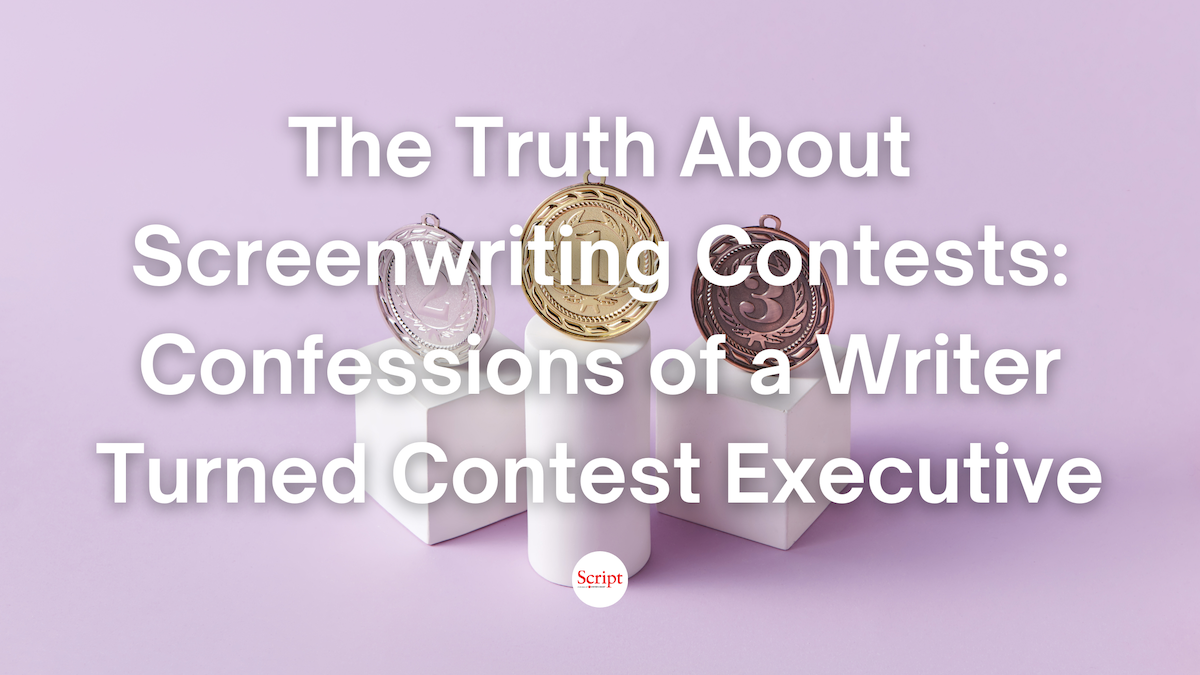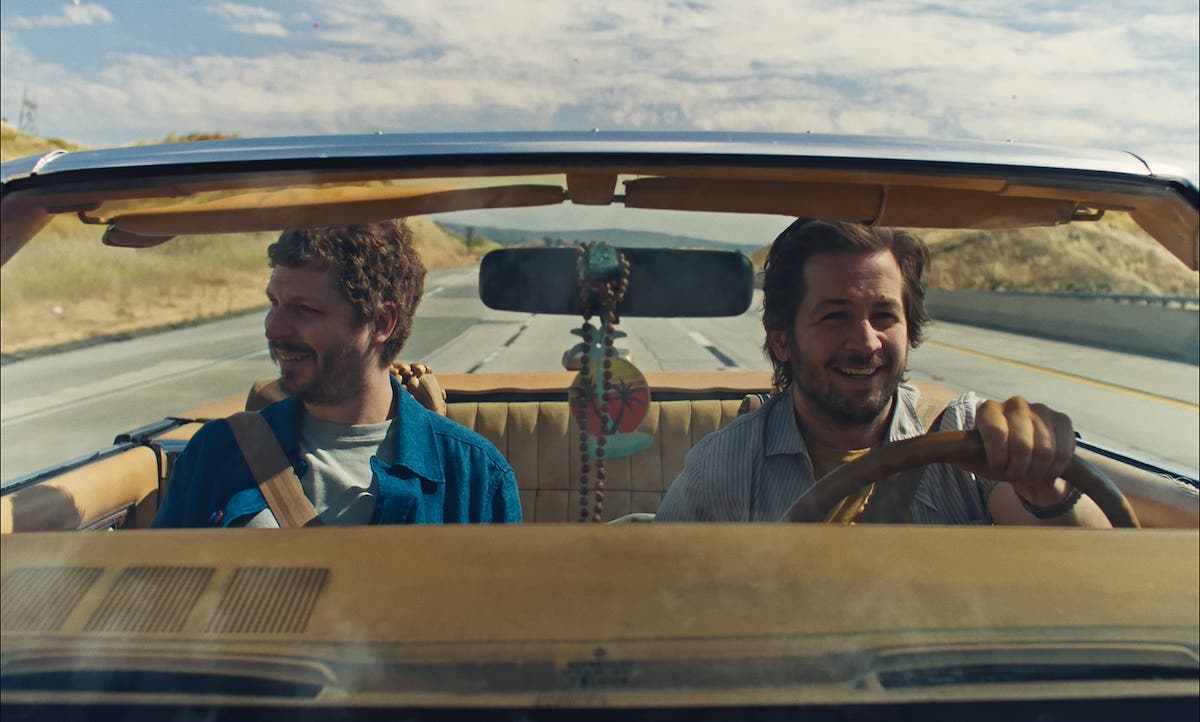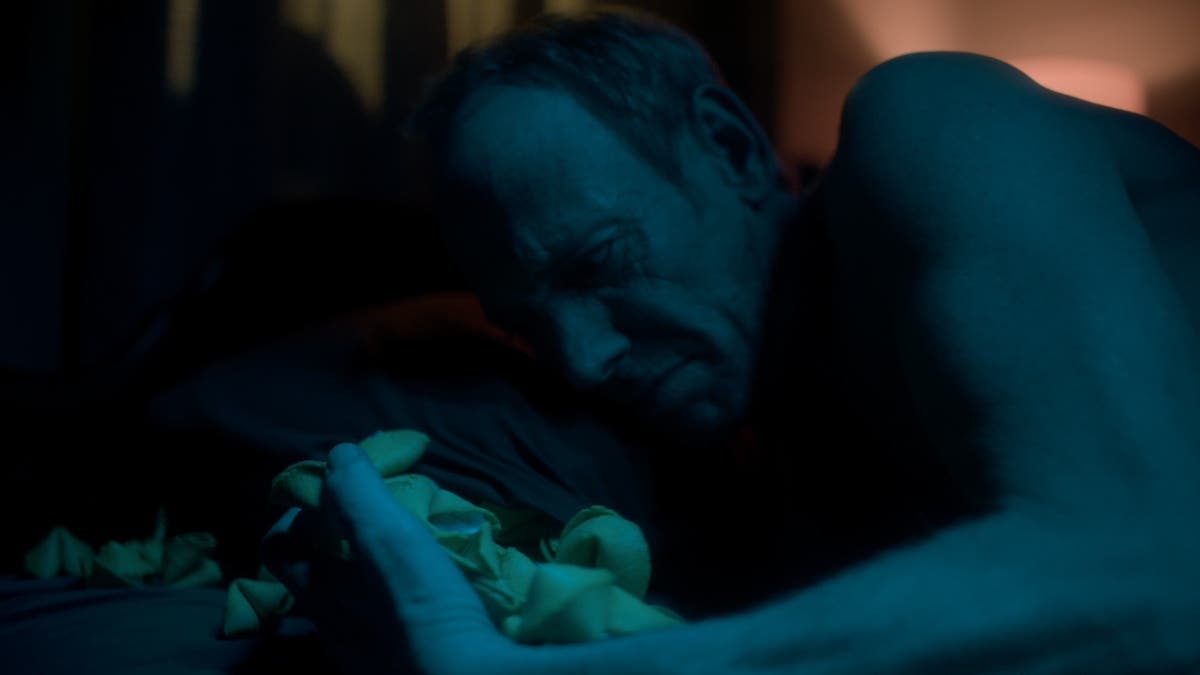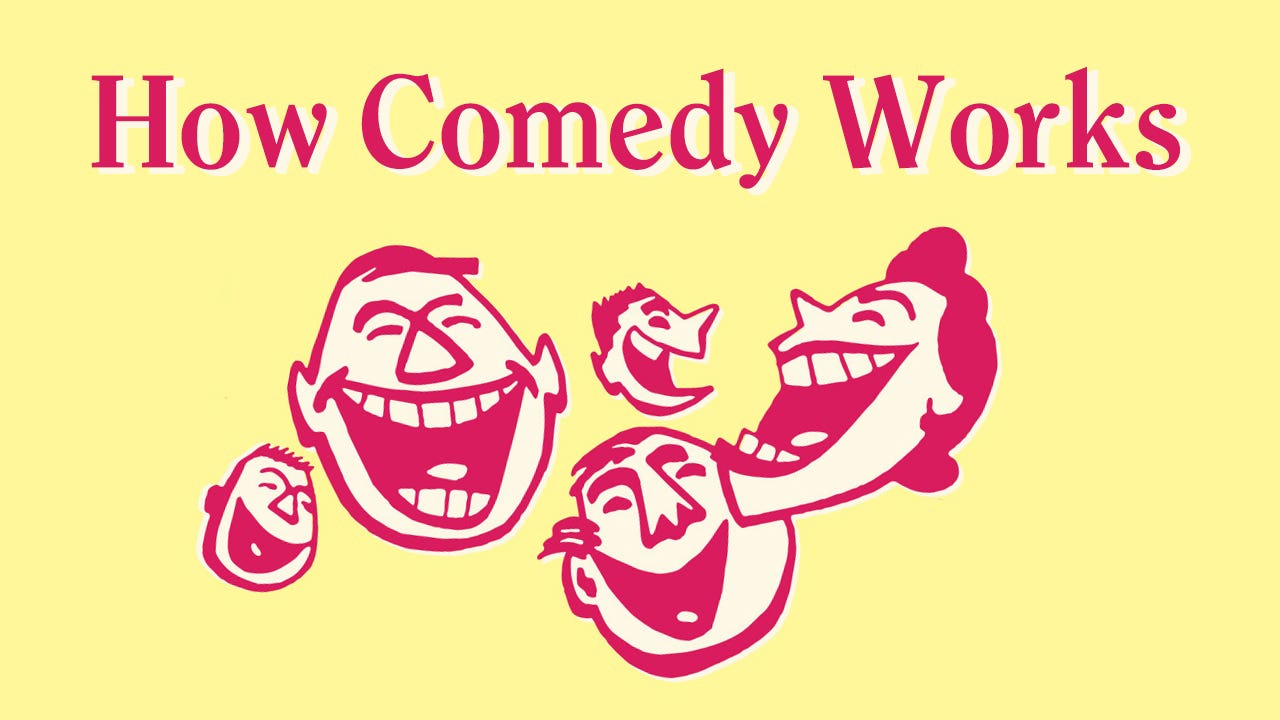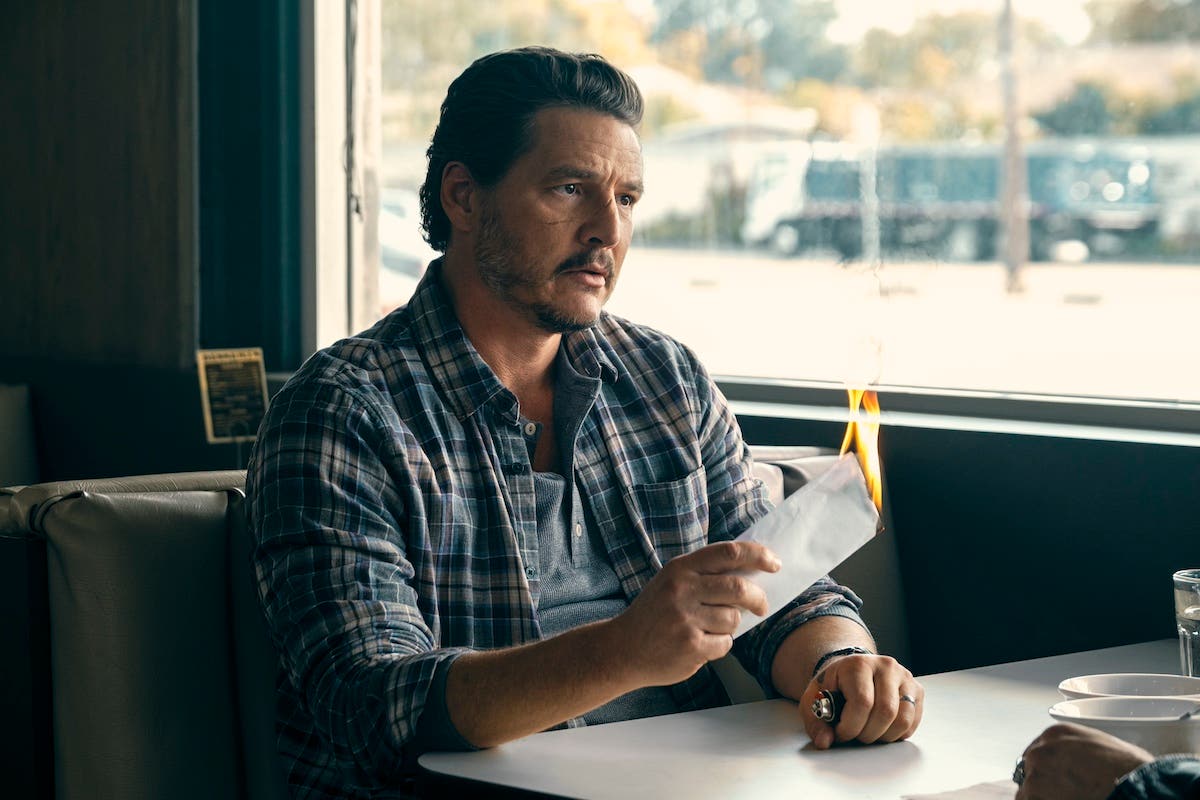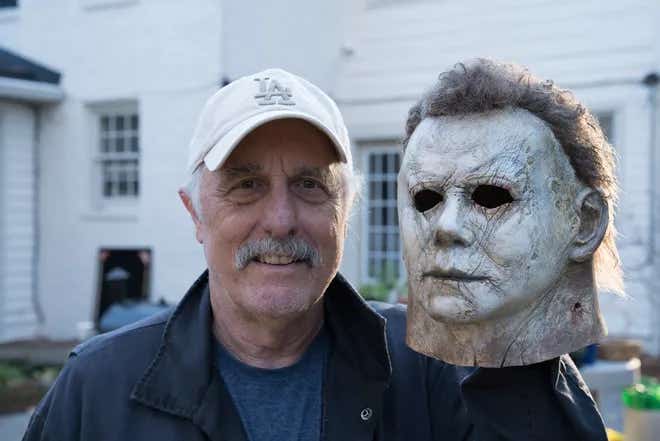BALLS OF STEEL™: Meet Guinevere Turner and Her New Project, ‘Creeps’
Actor, writer, director Guinevere Turner sits down with our editor to dish the dirt on writing, indie filmmaking and ‘Creeps’.
Always on the hunt for writers taking control of their own destiny, I was fortunate enough to be introduced to Guinevere Turner writer of American Psycho, The Notorious Bettie Page, and now a full-on indie filmmaker with a new project at hand. Once I watched her IndieGoGo video, complete with puppets doing drugs, I was hooked.
Let’s dive in and see what makes Guinevere Turner tick…
JVB: What's your current project about?
GT: My current project, Creeps, is about two best friends, a gay man and a lesbian, and a week that they spend trying to stay sober. (They like their drugs and alcohol). Really it’s kind of about the way we create family in our LGBT culture. It’s about a whole kind of alternative family group of friends and their lives in a week.
JVB: After writing films like American Psycho and The Notorious Bettie Page, what inspired you to go indie?
GT: Ha that’s a hilarious question. They are indie to me! They were both extremely challenging to raise money for. A movie with the word “Psycho” in the title, that isn’t really a horror film at all, and a movie with one of the sexiest women of the century that is more of an intimate character piece. Not easy to sell. But what’s making me go DEEP indie now is a.) That is where my filmmaking instincts started (Go Fish), b.) My movie Creeps is also a hard sell (LGBT functional addicts who aren’t that nice), and c.) The whole crowdfunding option intrigued me and appeals to my thrill-seeking, risk-taking side. So why not go for it? If not now, when?!
JVB: Having co-written Creeps and other scripts, what’s your process working with a co-writer?
GT: It depends on who it is. I personally really like to be in the same room (I loathe talking on the phone anyway), and I like for there to be only one computer that gets passed back and forth. I know some collaborators pick scenes and go off and write them separately, but that doesn’t work for me. It’s about the conversation in the room, and brainstorming. And who types faster.
JVB: You are one of those multi-hyphenates that jumps in and puts on any hat needed. Totally respect that. What are the pros and cons of directing and/or acting in your own scripts?
GT: I’ve acted in two films that I also directed, and that was a bit of a beast to manage, especially since I am new to the directing part and learning. Acting my own words is super fun, and if it’s something I haven’t written, I always change my dialogue when I am performing. (Usually directors say “Feel free to say it in your own words if you like.”)
JVB: We often hear the advice, “write every day.” What's your average day of writing consist of?
GT: Early rising, avoiding the Internet if possible. No noise and certainly no conversation (I am single and have no pets so this is usually easy). And no matter what I am working on, I try to write by hand, away from my desk (kitchen, coffee), and just have a totally analog half hour. I write about personal stuff, or funny ideas, or I am a big one for just writing out an entire anecdote from the day before. Especially writing down entire conversations in dialogue form. I feel like it’s a great exercise but also it’s a gift to my future self because it usually makes me laugh or makes me nostalgic for another time. All of this puts me in a good place for the work-related part of my writing (not that the two are entirely separable, ever), and then I usually work on whatever I am doing until about 12. If that. If I am to be honest, I don’t even write every day. I do a lot of thinking, walking, talking to people about what I am writing. It’s in my head, it’s brewing, but I am not one of those writers who benefits from a rigid self-imposed schedule. In a way, I am always writing, just maybe not physically.
JVB: This business, where we write, get rejected, write some more, and hustle our own work can burn artists out quickly. How do you relax?
GT: I am devoted to taking walks and listening to storytelling podcasts like The Moth, and my favorite: Risk! I feel like hearing other people tell their stories is so interesting and useful. I laugh, I cry, I look like a crazy person walking down the street in my neighborhood. I always come back home inspired and invigorated. I highly recommend it.
JVB: Is there anything you find particularly challenging in your writing?
GT: I struggle most with losing perspective and thinking that maybe what I am writing is boring, and I am on my own trip. (Sometimes I am right, I am sure!). So, I have to step away a lot, work on something else, watch movies. (Oh wait, is that all an elaborate justification for just messing around when I should be writing?). But time and time again I remind myself that writing makes me happy, even if I don’t think it’s the most brilliant thing I’ve ever done. Basically, it’s a lot of stern talking to’s and ”get over yourself”s. I think most writers can identify with the emotional roller coaster of it all.
JVB: Let’s talk big picture here. What are your ambitions for your writing and filmmaking career? To continue on the indie path? Both?
GT: My very realistic goal is to win BIG, BIG at the lottery, and then use the money to make indie films and help other people to make indie films until I get sick of it all and become a reclusive novelist with a team of devoted staff. But that’s just how I feel this morning...
JVB: Have you read any screenwriting books that changed your perspective or helped elevate your work that you’d recommend?
GT: I have actually never read one. My education has been through experience, trial and error, and reading volumes and volumes of screenplays, as a writer and as an actor. One book I do recommend though for writers of all kinds is Stephen King’s On Writing. I am not a big fan of his novels (in fact, may never have read one in its entirety), so I was surprised to find that his insights into writing are fascinating, eye opening and a great read. Really inspiring.
JVB: I always like to put writers on the therapy couch. If you could go back in time and give advice to your 18-year-old self, what would it be?
GT: “Hang on, baby GT. It’s about to get SUPER fun.
Be sure to check out Creeps and find Guinevere on Twitter at @turnerguinevere and on Facebook to keep tabs on if she wins big on the lottery or not. Regardless, I’m confident she’ll squeeze all the fun out of her crazy filmmaking ride that she can.
Guinevere Turner is also a script consultant. For inquiries, email her at guinevere.turner@gmail.com.
Jeanne Veillette Bowerman is a Senior Executive at Pipeline Media Group and Book Pipeline, Editor-in-Chief of Pipeline Artists, Director of Symposium—a year-round conference in the arts, co-host "Reckless Creatives" podcast, partner at Fringe Press, former Editor-in-Chief of Script magazine and a former Senior Editor at Writer's Digest. Recognized as one of the "Top 10 Most Influential Screenwriting Bloggers," her "Balls of Steel" column was selected as recommended reading by Universal Writers Program. A compilation of her articles is now available at The Writers Store—Balls of Steel: The Screenwriter's Mindset. She is also Co-Founder and moderator of X's weekly screenwriters’ chat, #Scriptchat, and wrote the narrative adaptation of the Pulitzer Prize-winning book, Slavery by Another Name, with its author, Douglas A. Blackmon, former senior national correspondent of The Wall Street Journal. More information can be found on her website. X: @jeannevb | IG/Threads: @jeannevb_ | BlueSky: @jeannevb.bsky.social


